How Google fights against the Justice Department’s monopoly claim: ‘Getting armor in the 21st century prevents shot from a 20th century gun
- Tram Ho
The US government is doing its best to fight Google in the search and advertising business, in the largest antitrust lawsuit in more than two decades. But, Google may prevail, in part because the US Department of Justice (DOJ) is trying to test a 21st-century business model within the framework of the 20th century.
After a two-year investigation, DOJ recently filed this long-awaited antitrust lawsuit in federal district court on Tuesday. However, according to the complaint, it seems the influence from the election has narrowed the lawsuit, focusing only on the areas of search advertising and Google search engine.
The Justice Department worked with a large group of state attorneys general on the case, but in the end only 11 people from Republican-led states attended. One source said attorneys general in Democratic-led states wanted to bring a larger-scale lawsuit focused on anti-competitive activities in non-business sectors. Google searches, such as personal data collection and Fitbit acquisition process.
According to the complaint, Google accounts for nearly 90% of all general search engine queries in the US and nearly 95% of queries on mobile devices. It also uses a colorful linguistic system to describe how Google, from a shabby garage born company began to overtake other search engines into search engines. earn the biggest on the Internet. And the consequence is that advertisers naturally flock to Google, because it has the most users and the largest reach. With billions of dollars earned through advertising, the company continues to invest in its search engine.
Google has left the competition behind. DOJ does not blame Google for its resurgence, but rather asserts that the company has maintained its market dominance in ways that harm consumer choice and prohibit competition.
The power of the world's largest search engine
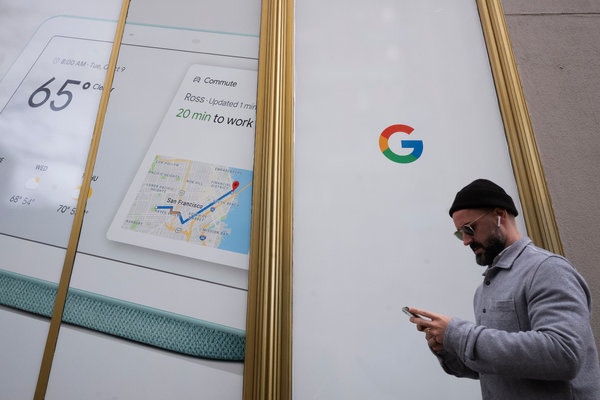
DOJ claims that Google paid exorbitant interest payments to smartphone makers like Apple, carrier AT&T, and browser makers like Mozilla to make Google the default search engine. that everyone will see on different monitors. Analysts estimate Google pays Apple up to $ 9 billion a year to bring the Google Seach bar to iOS.
And these deals already cover more than 60% of US searches. It later claimed that Google captured more than half of the remaining searches through its default search engine in its own Android mobile platform and the Chrome desktop browser on mobile devices. moving.
Therefore, DOJ is suing Google under Section II of the Sherman Act, a law dating back to 1890 and updated in 1914. Section II of this act prohibits businesses from unreasonably restricting trade. via "monopoly, trying to monopolize or conspire or combine to monopolize".
But the problem is that the Google agreements are signed by the free will of the parties and at least some other search engines may theoretically pay higher prices than Google to gain the default status on some devices or browsers.
Antitrust attorney Jonathan Rubin of MoginRubin LLP, a Washington DC-based law firm, said: "The Justice Department will have to convince the court that the deals are illegal, and somehow surpassed. too normal competition, and that could be a tough fight for them. "
Who is hurt?
"One question the Justice Department needs to answer in this lawsuit is who is really harmed by Google's monopoly," said lawyer Rubin.
The lawsuit now appears to see the main victims of Google's dominance as a small subset of browser makers including Microsoft (Bing), DuckDuckGo and others, possibly prevented from growing to scale. big enough to compete. Next to that are marketers bound by Google's restrictions on desktop advertising and mobile search. And the consumer is considered a secondary victim.
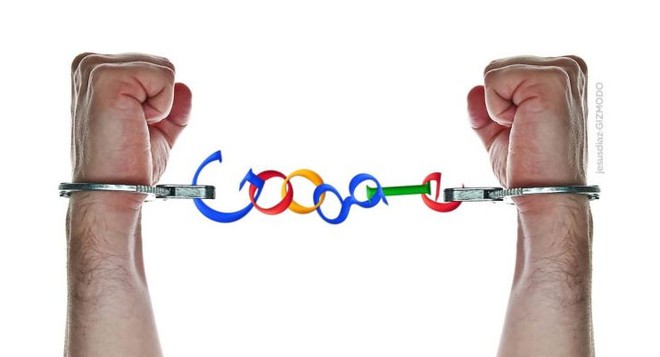
But, US courts tend to look at antitrust through the lens of its influence on consumers first, and then businesses. That means DOJ will also have to prove that due to Google's default status on devices or browsers, consumers are being deprived of choice or quality in search.
"You certainly can't say they're being billed, because search is free," said Mr Rubin. "So there must be a kind of connection to consumer welfare here, that's a weakness of this lawsuit."
Besides, it is not easy to argue that consumers are stuck with a substandard search engine, as it is clear that Google is not. Of course, some people claim that Google quietly interfered with reducing the number of organic search results and this has reduced its quality.
DOJ will also have to convince the court that Google is depriving the consumer of choice. And here's how the Justice Department does it:
"Even if users can change default settings, they rarely do," writes DOJ's complaints. "This makes the general search engine preset default exclusive in practice. As Google itself realizes, this is especially true on mobile devices, where the defaults are particularly tempting. guide."
In other words, people are more likely to just stick with the default search engine on their device, and Google knows it. That's part of the reason Google pays so much to be the default.
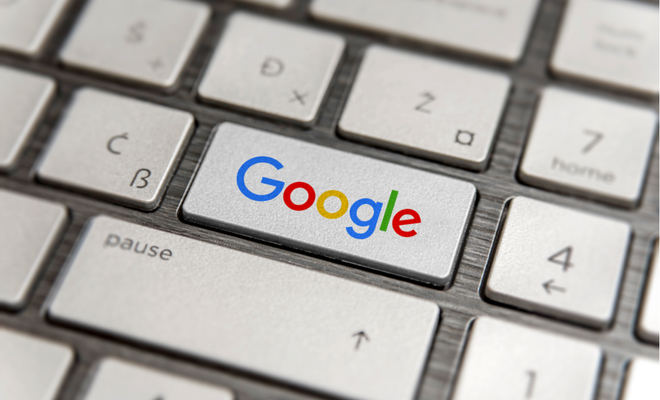
However, in a recent blog post, Google called DOJ's rationale "profoundly flawed". The company has shown how easy it is for consumers to choose alternative search engines on both desktop and mobile devices, a rule of thumb that their lawyers will repeatedly bring to court. .
The DOJ's flaw is that many people stick with the default search engine not because they don't know how to change it, or it's too hard to change, but because they like the default search engine.
"There will have to be proof that people in general don't convert because people don't usually switch from any of the default modes, or because people are choosing to stay with Google," says Joel Mitnick, a former lawmaker. of the Federal Trade Commission (FTC) said.
Mitnick said the DOJ could take consumer survey research to court, showing that the main reason consumers use Google's search is because they don't know they have an option to use something else. Or, DOJ can rely on Google's own words to show that the company intends to prevent competition by its growth, not by the value of the search product.
According to William Kovacic, professor of antitrust law at George Washington University, this kind of evidence has been very important in an antitrust lawsuit by the US government against a major technology company in the past. Specifically, in 1998, in the Microrsoft lawsuit, the DOJ lawyers brought to the Microsoft internal communications court showing that the company intended to remove Netscape's browser by attaching its Internet Explorer browser. Windows operating system.
"They have some very damn internal documents," said Kovacic, who previously served as chairman of the Federal Trade Commission. "Some of them use a very unique language. One even implied 'cutting off Netscape's oxygen supplies'."
The results of the antitrust lawsuits may pop up such documents, a fact Google knows well. And it's not surprising that the company frequently reminds its employees not to use fancy language like "crush", "kill" or "block" in internal communication. Such communications may be discovered by opposition attorneys and cannot be destroyed by law during the course of an ongoing investigation.
The end of the game
According to experts, the Google lawsuit could take 3 years to resolve. Former lawyer Mitnick said that antitrust lawsuits often end with out-of-court resolution, with one exception with Microsoft. While debates are held for weeks and months in the courtroom, the two sides will continually consider "turning points" or opportunities to reach the bargaining table. These negotiations often take place in parallel with court proceedings over a long period of time.
The same is likely to happen to DOJ and Google's attorney. "In reality, it's likely that settlement negotiations went well between the two sides before the lawsuit is filed. If so, obviously no deal can be reached," said Mitnick .
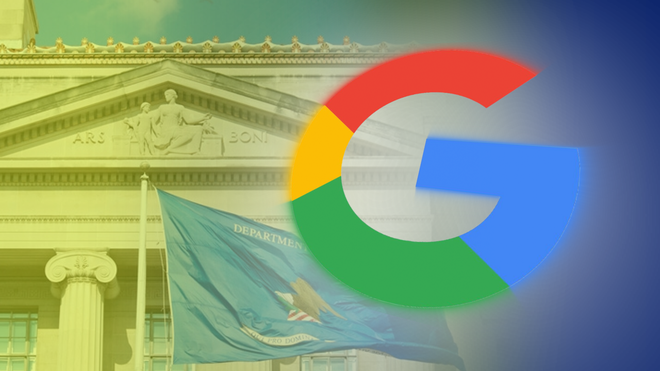
And the fundamental disagreement here, may be whether the legal measure will ultimately be a "structural measure" or a "behavioral measure". One behavioral approach may involve Google changing some of its practices in its search engine and search advertising businesses.
"Google can come up with a number of things that it could exist without. For example, it might decide to make it easier to use alternative browsers on Android devices. It could loosen some Restrictions on how Android device manufacturers pre-install popular Google mobile apps on their homescreen and how Google Seach displays outstanding results, " Rubin said.
But DOJ is asking for more, even more, through a structural measure. This message was also given under a bullet in the "remedy" section of the complaint. The structural remedy means that Google will have to separate the parts relevant to its search engine and search advertising realm. But given Google's business model, separating search and advertising doesn't make much sense.
"I don't see what they can separate from what. You can't separate search from advertising because that's the business model," Rubin said. "No court will approve a remedy that is essentially hitting the heart of a company's business model, because it would put that company out of business or paralyzed. That's not how antitrust cases work. "
Residual sound from Microsoft
The US Department of Justice's complaint contains references and references to Microsoft's lawsuit from 22 years ago. But there is a key difference in that case and Google's lawsuit.
Microsoft already has a poor quality product, which they are trying to upgrade by sticking it with Windows and forcing Windows PC manufacturers to install it. Consumers feel hurt and complain about being stuck with Microsoft's Internet Explorer browser and being cut off from Netscape. As for Google, most people don't hate its search engine, and it's hard to argue that it's something less than better in this segment.
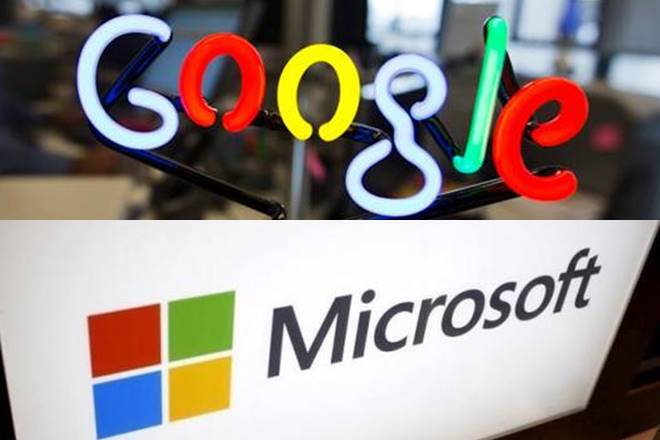
DOJ's lawsuit against Google was not due to consumer anger over a particular product. It may be driven by the US government's growing distrust of Big Tech, and by lawmakers' growing desire to control the growing political power of companies. technology.
The lawsuit against Google will be heard in the same federal court or courts that heard Microsoft's case, and will be reviewed through the same antitrust framework. But the similarities probably don't go any further than that. The world around Google's lawsuit is not the same as that of 1998, both technologically and politically. If Google is a monopoly like Microsoft, then it looks like a friendlier monopoly. The Google product is free and it exists on the public Internet where users can freely switch to the DuckDuckGo or Yahoo search engine any time they want (despite the fact that it is difficult to do so on mobile device).
"Internet companies such as Facebook and Google may present a special issue with existing US antitrust laws, written to control individuals or companies that seek to control supply chains or markets. corner field for finite items, " said technology and business analyst Ben Thompson. "Facebook and Google are aggregators, and the value of their services increases as the number of people using them increases. They protect their monopoly by maintaining products that people generally like. "
Both Thompson and former FCC president Tom Wheeler discussed the idea that the US government may need to "update" its antitrust laws for the digital age. Wheeler proposes the creation of a new, rebuilt federal agency to regulate the existing digital economy.
These changes could give governments a new framework for understanding and regulating companies like Google. Because, while the Internet giants have created new kinds of value, they also correctly identified new kinds of costs – like the insatiable appetite for personal data – which Coating currently lacks the equipment to minimize and control.
Consult fastcompany
Source : Genk
